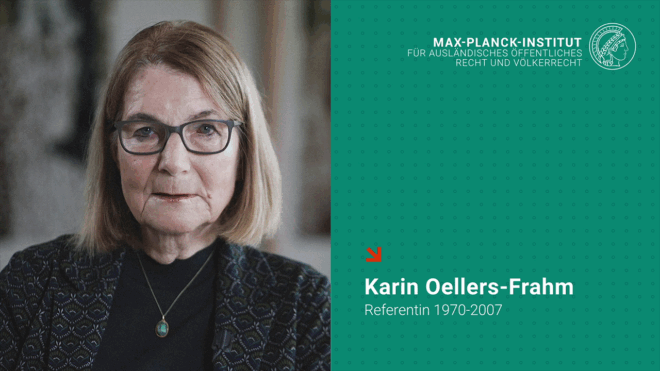Legal concepts rarely transfer neatly from one system to another. Over five decades at Heidelberg’s Max Planck Institute for Comparative Public Law and International Law, Karin Oellers-Frahm saw how familiar‑looking terms can have very different meanings across jurisdictions. Trained as a French‑Italian interpreter in the 1970s, she soon moved into international law, building a career that combined linguistic skill with deep engagement in comparative and public international law.
From co‑editing a leading commentary on the Statute of the International Court of Justice to witnessing the Institute’s shift from German‑only conferences to an English‑dominated discourse, she learned that true precision rests on cultural fluency as much as on translation. As machine translation advances and English becomes academia’s common language, she reflects with MPIL’s Carolyn Moser and Philipp Glahé on what may be lost — and why future international lawyers must master the legal cultures behind the words.
About Karin Oellers-Frahm
Karin Oellers-Frahm rose from interpreter training to become one of Germany’s quiet power brokers in international law. After stints translating at the nascent European Community, she joined Heidelberg’s Max Planck Institute for Comparative Public Law and International Law in 1970—an uninvited female newcomer in a world of male jurists. There she helped turn dusty court files into living doctrine: her early thesis that provisional measures of the International Court of Justice must bind states later shaped ICJ jurisprudence. A polyglot with a taste for method, she co-edited the leading commentary on the Court’s Statute, steered the monumental “Fontes” case-law series and mentored generations through Jessup moot courts. Half a century on, alumni still carry the MPI imprint she personifies: rigor, linguistic precision, and an insistence that law’s global dialogue depends on culture as much as codes.



Pingback: Eine Frage der Klasse. Die Sekretärinnen des Instituts 1924–1997 – MPIL100